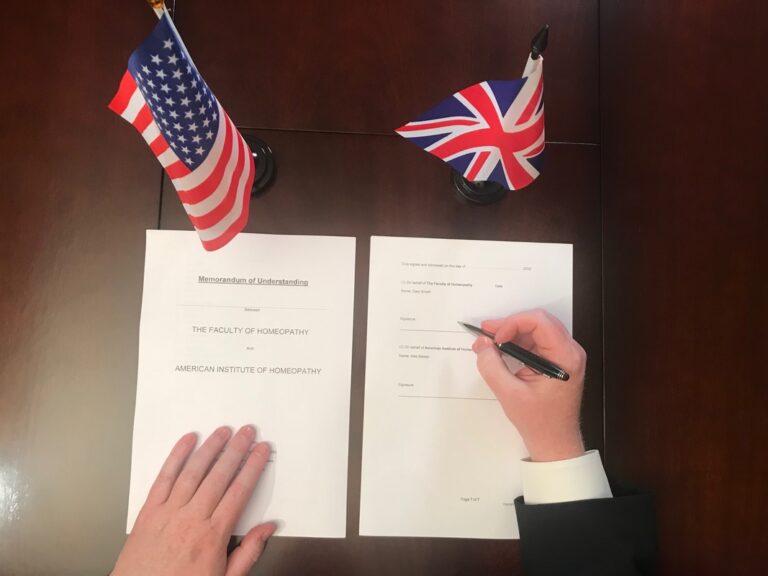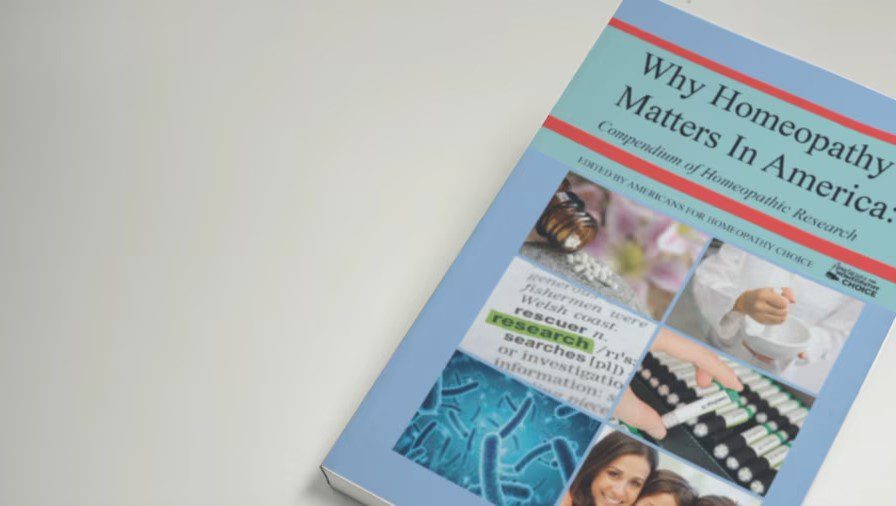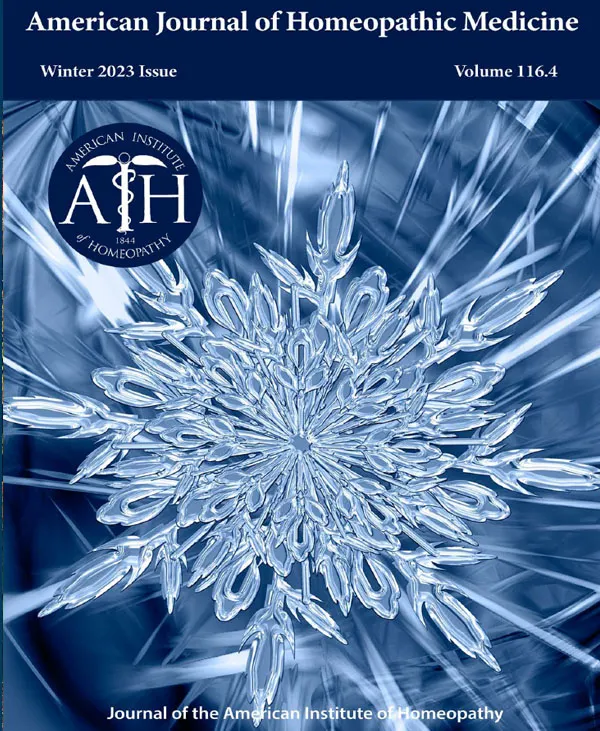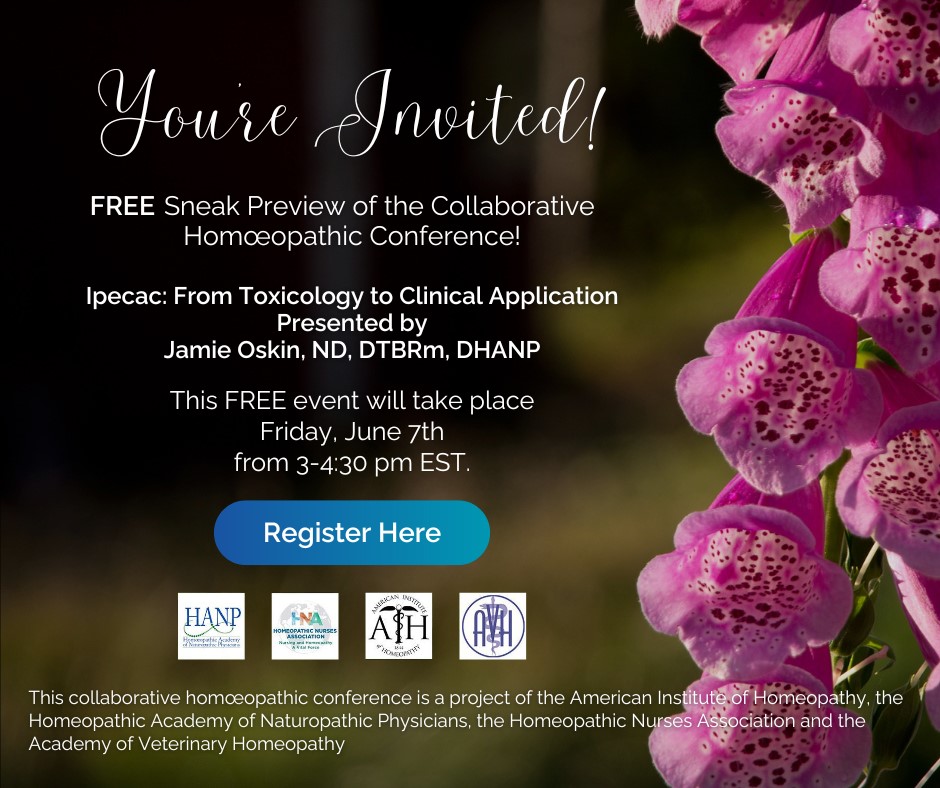
Letter to FDA
To: John J. Whyte, MD, MPH, CDER, ORP, DRPIV
Elaine Lippmann, CDER, ORP, DRPIV
Center for Drug Evaluation and Research
Food and Drug Administration
10903 New Hampshire Avenue
Bldg. 51, Rm. 6238
Silver Spring, Maryland 20993
Dockets Management Staff (HFA-305)
Food and Drug Administration (FDA)
5630 Fishers Lane, Room 1061
Rockville, Maryland 20852
Re: Docket No. FDA-2017-D-6580, Docket No. 2017-27157 Drug Products Labeled As homeopathic; Guidance for FDA Staff and Industry
From: The American Institute of Homeopathy
CC: James S. Turner, Esquire
1400 16th Street, NW, Suite 101,
Washington, DC 20036
Date: May 7, 2018
Introduction
On behalf of the American Institute of Homeopathy (AIH), we are respectfully submitting additional comments to the Food and Drug Administration (FDA) on the Draft guidance entitled “Drug Products Labeled as Homeopathic, Guidance for FDA Staff and Industry (Draft Guidance) issued December 20, 2017. These comments incorporate and supplement the AIH comments submitted to the record on February 8, 2018.
We have submitted the following Memorandum into the FDA comment docket in accordance with the Administrative Procedure Act. We respectfully request that FDA not eliminate the Compliance Policy Guide section 400.400, Conditions Under Which Homeopathic Drugs May be Marketed (CPG 400.400). We offer evidence and arguments for the proposition that the health of the U.S. population would benefit from the broader inclusion of homeopathic medicine in the public marketplace as well as in conventional medical training. We recommend that the FDA undertake a review of homeopathic drug products, as promised in 1972, and that homeopathic medical professionals be included on an expert FDA advisory panel specifically tasked with this review. Thank you for taking the time to review these comments.
Established in 1844, the American Institute of Homeopathy (AIH) is the oldest national medical organization in the United States. Our membership is composed of licensed physicians (medical, osteopathic, naturopathic and veterinary), dentists, nurse practitioners and physician assistants who have integrated homeopathic medicine into their practice, as well as pharmacologists and pharmacists.
Our mission is to promote the science and art of homeopathic medicine, to safeguard the interests of the homeopathic medical profession, to improve the standards of homeopathic medical education, to educate the medical and scientific communities about the scientific basis for homeopathic medicine, and to increase public knowledge and acceptance of homeopathy as a medical specialty.
The AIH has a number of concerns about the new Draft Guidance as it is currently written.
Background
Homeopathic medicines are unique in today’s world. They have a 220-year-old history, are currently used by nearly 250 thousand physicians and over 500 million people worldwide. Data from the Federal National Health Interview Survey analyzed by a team at Harvard University suggests that nearly 7 million Americans use homeopathy, with steady growth. Users tend to be predominantly female, highly educated and pursue healthy lifestyles. It is used primarily for upper respiratory and ear problems and considered more effective than conventional OTC medicines or nutritional supplements.[1]
Homeopathy is one of the most popular forms of integrative medicine, and is based on the observation (originally made by Hippocrates and Paracelsus)[2] that disease states can be treated with substances capable of producing similar conditions in healthy individuals, or ‘treating like with like’ (in Latin similia similibus curentur).[3]
Homeopathy is not based on a concept, but on empiric scientific observations made through the experimental study of human health and disease. Homeopaths were the first to perform clinical drug trials, called provings. [4] They learned, through repeated observation, that when medicines are applied according to the Law of Similars, they:
- Work more effectively when they are individualized to the particular state of each unique patient[a]
- Display a tendency toward holism by affecting the entire organism, even when administered with the intent of treating only a single part of it[b]
- Affect both body and mind as part of a psychosomatic continuum
- Tend to encourage healing via predictable and reproducible pathways[c]
- Augment inherent homeostatic mechanisms already present in the body
- Usually require only (I) one single medicine, (II) infrequent administration and (III) extremely small doses[d]
Homeopathic medicines originate mostly from plant, mineral, and animal sources that are serially diluted and vigorously agitated (succussed) during the manufacturing process. This process of succession is integral to the formation of nanoparticles in homeopathic medicines. Twelve independent research laboratories in the U.S., France, Italy, Russia, and India have found that homeopathic medicines contain various nanostructures, including source material, silica (from the glassware used for succession), and gas nanobubbles heterogeneously dispersed in colloidal solution.[5]
The peculiar nature of the manufacturing process not only generates these nanoparticles but heterogeneously distributes them throughout the preparation media, thus leading to their uneven distribution in the final drug products. This nonuniformity, at the nanogram level, was demonstrated by the FDA’s own modern chemical analysis,[6] but it is clinically irrelevant when good manufacturing practices are strictly adhered to, as defined by the Homeopathic Pharmacopeia of the United States (HPUS), which was incorporated into US law by the 1938 Food, Drug and Cosmetic Act.
Homeopathy works to stimulate and augment the body’s self-healing, or homeostasis mechanisms, moving the organism toward disease prevention, resolution and recovery from illness. When homeopathic medicines are prescribed on the basis of the criteria (listed above) they work through the body’s own intelligent, innate healing mechanisms, utilizing existing biochemical pathways,[7] altering gene expression, protein synthesis, and immune system functioning (including the microbiome) to restore health.[8]
A significant body of preclinical[9] and clinical evidence[10] exists in the research literature supporting the effectiveness of homeopathic medicines in treating individuals over a wide range of conditions. Homeopathy demonstrates historical, observational, and randomized clinical trial evidence of good outcomes,[11] greater safety,[12] patient acceptance, accessibility and cost-savings.[13] Integrating homeopathy more fully into the U.S. Healthcare system would contribute significant benefits to public health by improving outcomes while simultaneously lowering costs for many serious conditions, including:
- Opioid overuse and dependency[14]
- Polypharmacy
- Adverse drug reactions (ADRs)
- Antibiotic overuse
- Antibiotic resistant superbugs
- Treatment recidivism
- Patient noncompliance
Homeopathy works by strengthening the body’s defenses (promoting homeostasis and building resilience so that the body can fend off illness) rather than directly targeting particular diseases. A strengthened body fights diseases and generates immunity via innate inflammatory and repair pathways that are part of normal human functioning.
One reason why homeopathically treated patients occasionally report initial aggravations of their symptoms before health is restored, is because these medicines stimulate the same inflammatory pathways used by the innate immune system to help restore balance and fight illness.[15] These aggravations appear to be an integral part of the healing process.
Since homeopathy is prescribed individually, in accordance with the holistic totality of the dynamic state of the patient (rather than to treat a disease), the dosages are substantially lower, and their resulting side effects are exceedingly rare. These medicines exhibit far more long-lasting effects that last longer, require less frequent repetition of dosages, and are much safer than conventional drugs. All of this confirms the adaptational network nanomedicine mechanism of homeopathy.[16]
FDA’s Reexamination of its Enforcement Policies
The new Draft Guidance describes how the FDA intends “to prioritize enforcement and regulatory actions for human drug products labeled as homeopathic and marketed in the United States without the required FDA approval.
Classifying all homeopathic drugs as unapproved new drugs without formally reviewing any homeopathic products and/or ingredients ignores the fact that homeopathic practitioners in the United States have effectively used these medicines to treat a wide variety of patients on a daily basis since they were first introduced by Hans Burch Gram, MD in New York City in 1825, and have been safely utilized throughout the world for more than 220 years.
Use of homeopathy is geographically widespread and increasing in popularity both in the United States and worldwide. Clinical research and meta-analyses of research demonstrate that it is safe and effective for a wide range of conditions.[17]
If the FDA’s intent is to fully reevaluate its approach to the regulation of homeopathic drugs, then a rush to declare all of them illegal (i.e., unapproved new drugs) is immensely counterproductive. While the FDA “recognizes that many products currently labeled as homeopathic will fall outside the [new] risk-based categories” for enforcement, the regulatory changes still renders all homeopathic drugs “illegal” or unapproved new drugs.
In 1972, the FDA decided that Because of the uniqueness of homeopathic medicine it would not review any drug products labeled as homeopathic under the OTC Drug Review, because the Agency categorized these products as a separate category and deferred consideration of them.
(37 FR 9464, 9466 (May 11, 1972)), but the time has come to formally institute a new review process fitting for homeopathic drugs, similar to the one established for over-the-counter (OTC) conventional drug products. The AIH recommends that the FDA fulfill this promise to review these products as a separate and unique category and to provide them with the same deference still afforded to conventional drugs.
Whatever review system the FDA ultimately chooses must take into consideration the fact that homeopathic medicines are both separate and unique from conventional medicines; they are distinctly different, and act in biologically and physiologically unique ways when compared with conventional drugs. They must not be judged by the same standards or criteria that are imposed upon chemically active conventional drugs.
Homeopathic medicines are intended to be used to fortify an individual’s health to either prevent or overcome, but not to specifically treat, a disease entity. Practitioners and clients who utilize these medicines are not treating diseases, per se, but they are treating the individual who is sick with the disease.
Furthermore, homeopathic medicines, when prepared according to guidelines established by HPUS are inherently safe. When used according to guidelines these medicines have a remarkable safety record both before and after passage of the 1938 Food, Drug and Cosmetic Act.
We believe that it is essential for the FDA to empower an expert advisory panel (made up primarily of homeopathic medical professionals) to evaluate these medicines. The AIH would be pleased to provide recommendations of professionals qualified to serve on such a panel.
Compliance Policy Guide 400.400
The FDA stated that Simultaneous with the issuance of the final guidance, we will withdraw Compliance Policy Guide (CPG) 400.400, Conditions Under Which Homeopathic Drugs May be Marketed, issued on May 31, 1988.
We believe that the current CPG 400.400 has been effective since its inception in 1988 and should be kept in place. The FDA has always used a risk-based approach to homeopathy that appears to work well, conserve the agency’s limited resources and protect the public. Changing what works without a duly constituted review process seems to us to be ill-advised.
We encourage the FDA to institute positive changes to its regulations that will provide consumers with greater access to safe health options, such as homeopathy, while advancing the practice of homeopathic medicine in the United States.
The AIH appreciates that public safety concerns may underlie the FDA’s new revised risk-based enforcement approach to the regulation of homeopathic medicines, but we disagree with the agency’s proposal to withdraw CPG 400.400 without providing homeopathic drug manufacturers with an appropriate mechanism to “legally” market their products, or consumers a way of assuring that these products are manufactured or marketed in compliance with uniform standards set forth by the HPUS.
The proposed withdrawal of the CPG 400.400 regulatory framework will jeopardize public health by eliminating protections and safeguards that regulate the proper marketing and labelling of homeopathic medicines. Withdrawal of CPG 400.400 creates the opportunity for counterfeit homeopathic products to be marketed since the absence of these widely used and generally accepted standards will create a vacuum of regulation. We strongly urge that CPG 400.400 remain in place until the FDA completes an appropriate review process for homeopathic medicines, conducted under FDA auspices by individuals qualified and knowledgeable about homeopathy, as it did when it began a review of conventional OTC drugs in 1972.
FDA’s Risk-based Approach
The FDA already uses a risk-based approach with respect to homeopathic medicines and the changes that the FDA is currently proposing do not add any new powers that the FDA does not already possess in exercising its role to protect public health.
FDA’s ENFORCEMENT POLICY
Enforcement and Regulatory Priorities
The FDA provides notice that any product labeled as homeopathic that is being marketed illegally is subject to FDA enforcement action at any time. FDA is not required, and generally does not expect, to give special notice that a drug product may be subject to enforcement action. And they prioritize enforcement actions with regard to drug products labeled as homeopathic and marketed in the United States without the required FDA approval, identifying six categories rating the highest priority of surveillance and enforcement including:
Products with reported safety concerns.
- Products that contain or purport to contain ingredients associated with potentially significant safety concerns.
- Products for routes of administration other than oral and topical.
- Products intended to be used for the prevention or treatment of serious and/or life threatening diseases and conditions.
- Products for vulnerable populations.
- Products deemed adulterated under section 501 of the FD&C Act.
The AIH is in full support of the FDA prioritizing these categories of concern, but emphasizes that the current existing CPG 400.400 already allows this precise level of surveillance and regulatory action.
Conclusion
The AIH would like to see the FDA take positive steps toward fully integrating the practice of homeopathy into the healthcare system of the United States including:
- Empowering an expert advisory panel of homeopathic medical professionals to assist the FDA in the process of reviewing homeopathic medicines, as promised in 1972.
- Not rescinding CPG 400.400 until an expert review of homeopathic drug products is complete, and a more comprehensive guidance, that addresses labeling and conditions for marketing homeopathic products, is issued.
Homeopathy is beneficial, safe and cost effective. Integrating it more broadly into the U.S. healthcare system will contribute generously toward the resolution of many pressing social and public health crises affecting our society. There are many good reasons for the FDA to support the advancement of homeopathic medicine in the United States and these are only a few. The AIH looks forward to discussing these concerns and assisting the FDA in this process.
Thank you for your time and consideration of these matters. Please contact us at admin@homeopathyusa.org or by phone at 888-445-9988. We look forward to a response along with the opportunity to work more closely with the FDA as it seeks to understand and develop a reasonable approach to the regulation and advancement of homeopathic medicine in the United States.
Respectfully submitted,
Ronald W. Dushkin, MD
President, American Institute of Homeopathy
Ronald D. Whitmont, MD
Immediate Past President, American Institute of Homeopathy
[a] Recently, terms like personalized medicine or precision medicine have begun to denote the same principle of individualization that homeopaths have utilized for the past two centuries.
[b] The entire problem with side effects from conventional medicines is the result of a failure to understand that drugs almost always act systemically, even when applied locally. Homeopaths take this fact for granted and select medicines with this in mind: to act therapeutically on the Holistic totality of symptoms throughout the organism.
[c] Known as Hering’s Law of Cure.
[d] Known as the Law of Minimum Dose.
[1] Dossett, M., Davis, R.B., Kaptchuk, T.J., and Yeh, G.Y. Homeopathy use by US adults: results of a national survey. American J Public Health. 2016; 106: 743 745
[2] https://homeopathic.com/a-condensed-history-of-homeopathy/ accessed online April 15, 2018.
[3] Bell IR, Schwartz GE. Adaptive network nanomedicine: an integrated model for homeopathic medicine. Frontiers in Bioscience (Scholar Ed.). 2013;5(2):685-708.
[4] Hahnemann SC. The Organon of Medicine,6th Ed. 1842:53-54, Hahnemann SC
[5] Chikramane PS, Suresh AK, Bellare JR, and Kane SG. Extreme homeopathic dilutions retain starting materials: A nanoparticulate perspective. Homeopathy 2010;99:231-242.
[6] https://www.fda.gov/drugs/drugsafety/informationbydrugclass/ucm538669.htm accessed online April 15, 2018.
[7] Frenkel M, et al. Cytotoxic effects of ultra-diluted remedies on breast cancer cells. Int J Onc. 36. 2010:395-43.
[9] Linde K, et al. Critical Review and Meta-Analysis of Serial Agitated dilutions in Experimental Toxicology. Human and Experimental Toxicology. 1994;13:481-492.
[10] Linde K, Melchart D. Randomized controlled trials of individualized homeopathy: a state-of-the-art review. J Alter Complement Med 1998;4: 371 88.
[11] Cucherat, M., Haugh, M.C., Gooch, M., and Boissel, J.-P. “Evidence of Clinical Efficacy of Homeopathy: A Meta-Analysis of Clinical Trials.” European Journal of Clinical Pharmacology. 2000. 56(1):27-33.
[12] Dantes F, Rampes H, Do homeopathic medicines provoke adverse effects? Conference proceedings: Improving the success of homeopathy. London Royal London Homeoapthic Hospital. 1999p70-74. and Br Homeopathic J. 2000;89(Supl):535-538.
[13] Studer HP, Busato A. Comparison of Swiss basic health insurance costs of complementary and conventional medicine. Forsch Komplementmed. 2011;18(6):315-20. doi: 10.1159/000334797. Epub 2011 Nov 25.
[14] Whitmont RD. The Opioid Epidemic. Am J Homeop Med 2017;110(4):26-29.
[15] Taylor MA, Reilly D, Llewellyn-Jones RH, et al. Randomised controlled trial of homoeopathy versus placebo in perennial allergic rhinitis with overview of four trial series. Br Med J 2000;321(7259):471-76.
[16] Bell, IR. Homeopathy as systemic adaptational nanomedicine: The nanoparticle-cross-adaptation-sensitization model. American Journal of Homeopathic Medicine 2012;105(3):116-130.
[17] Kleijnen J, Knipschild P, Ter Riet G, Clinical trials of homeopathy. Br Med J 1991;302(6772):316-23.
Latest News & Updates
Latest Issue of the AJHM
AJHM – Winter 2023
Volume 116 Number 4
Table of Contents
- Editorial: In this Issue
- Homeopathic PuZZle?
- A Case of Erectile Dysfunction and Anejaculation in a Diabetic Patient
- Iron and Its Salts: Materia Medica and Illustration
- Suppression in the Organon
- An Appreciation of Jacques Jouanny’s Life and a Review of His Opus “The Essentials of Homeopathic Therapeutics”





